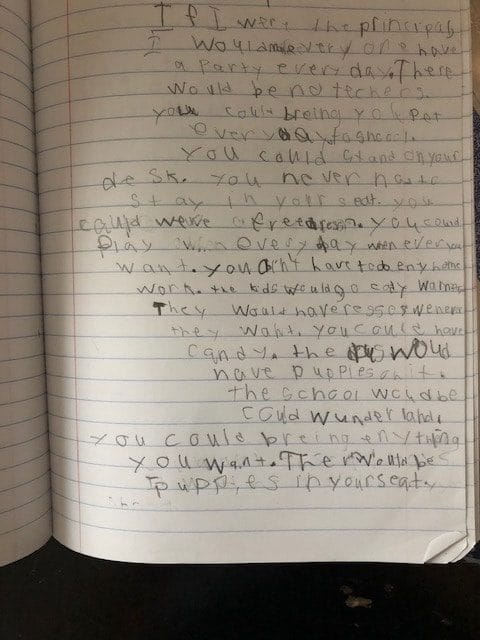


R10 Dyslexia Connects Newsletter
January 2023
Reflection for Growth
Happy New Year and Welcome to 2023!
Returning to work in the New Year is always a new experience, new calendar, and a new journal. As we begin a new year, it is always healthy to reflect on the past. Reflect on the year gone by. Think of the happy gains and the missed opportunities. Introspect on personal growth and learn from the experience. Reflection brings balance to life where focusing on the positive influence overriding the negative ones. Educator's work is infinitely complex. Without deep thinking about the work, educators may fall back on out of date curricula and old routines. Reflection is a systematic way of thinking that generates new knowledge by helping us create meaning from our experiences. It forces us to ask difficult questions of ourselves and to have the courage to find meaningful answers.
Reflection Prompts:
- What did you learn about your students/experiences?
- How will you use this information in continued work?
- What did you learn about your teaching?
- What would I do the same way?
- What changed?
- What is stopping me from improving?
- Do my teaching actions reflect my teaching beliefs?
Save the Date
Summer Dyslexia Institute-2023
WPS Blog: Challenges in Testing for Dyslexia
By Nancy Mather, PhD
There are many challenges in the assessment of dyslexia, including the use of varied terminology; reliance on phonological awareness as the sole linguistic risk factor; the inappropriate use of current assessment models; the underdiagnosis of twice-exceptional students; difficulties with early identification; complications with English language learners and the existence of co-occurring disorders that confound an accurate diagnosis. This blog discusses the challenges in testing for dyslexia in-depth, as well as the development of an innovative dyslexia test that can help address some of these challenges.
Read more HERE
Deciphering Dysgraphia
Dysgraphia is a neurological disorder of written expression that impairs writing ability and fine motor skills. It is a learning disability that affects children and adults, and interferes with practically all aspects of the writing process, including spelling, legibility, word spacing and sizing, and expression. It’s estimated that 5 to 20 percent of all children have some type of writing deficit like dysgraphia. In the Texas Dyslexia Handbook January 2021 Update, beginning on page 72 instructional accommodations for a student with dysgraphia are addressed.
By receiving instruction based on the elements described in this chapter, a student with dysgraphia is better equipped to meet the demands of grade-level or course instruction. In addition to targeted instruction, accommodations provide the student with dysgraphia effective and equitable access to grade-level or course instruction in the general education classroom. Accommodations are not a one size fits all; rather, the impact of dysgraphia on each individual student determines the accommodation.
When considering accommodations for the student with dysgraphia, consider the following:
• The rate of producing written work
• The volume of the work to be produced
• The complexity of the writing task
• The tools used to produce the written product
• The format of the product (Texas Scottish Rite Hospital for Children, 2018, p. 5)
Additional resources offered guidance for ARD committee consideration when making determinations:
Understanding Dysgraphia from International Dyslexia Association
Understanding Dysgraphia by Jessica Souza
At a Glance, Classroom Accommodations for Dysgraphia
Technology Integration for Students with Dyslexia and Related Disorders
Share the Science of Reading with Others
Uncovering the Logic of English: A Common Sense Approach to Reading, Spelling, and Literacy
Speech to Print: Language Essentials for Teachers
A Fresh Look at Phonics: Common Causes of Failure and 7 Ingredients for Success
Science of Reading Media Resources
EDVIEW 360 Podcast
Edview 360 Podcast by Voyager Sopris Learning. This is the company that does LETR’s training which we highly recommend. This podcast covers everything from phonics to handwriting to phonemic awareness all with the Science of Reading in mind. If LETRs is the gold standard for SoR professional development, then this is the gold standard for podcasts for sure!
Teaching Reading & Learning: The Podcast
Teaching, Reading, and Learning: The Reading League Podcast by Laura Stewart is another must listen. The Reading League is an organization whose goal is to bring awareness, understanding, and use of evidence-aligned reading instruction to the world. They offer professional development opportunities, a journal filled with current research reviewed by educators, a podcast, and so much more.
In this podcast, you will find interviews with experts such as Louisa Moats, David Kilpatrick, and so many more.
Together in Literacy
Together in Literacy is a podcast by Emily Gibbons of the Literacy Nest and Casey Harrison from The Dyslexia Classroom. If you follow Simply Kinder you will know that I love Emily and all of her work. She has been instrumental in our journey in the Science of Reading.
Don’t let the focus on dyslexia make you think these are not a good listen – children with dyslexia are struggling readers and represent 1 in 5 students so you have them in your classes. And most importantly, these are just good teaching practices for ALL learners.
Science of Reading Support for Teachers
10 Ways to Get Science of Reading Support for teachers. Looking for more training on the Science of Reading to better support your literacy instruction? Check out the list of 10 ways to get support here including several free or low-cost options for teachers. Whether you’re new to SoR or are knee-deep and looking to expand your understanding!
Check out Jennifer's Simply Kindergarten Blog HERE
Teacher Professional Development Resources
R10 ESC Professional Development-
SPRING 2023 SESSION AVAILABLE NOW-Click HERE to search for sessions!
International Dyslexia Associations-Dallas Branch
Understood.org
Academic Language Therapist Association
Multisensory Instruction Resources
Check out Free resources from IMSE to add to your therapy program.
Parent Resources
Partner Resource Network
SpedTEX
SpedTEX provides information and resources that can help you understand your child’s disability, your rights, and responsibilities under the Individuals with Disabilities Education Act (IDEA), and facilitate collaboration that supports the development and delivery of services to children with disabilities in our state. Learn more HERE
StandUpLD
Amie Davenport, Region 10 Dyslexia Consultant
Email: amie.davenport@region10.org
Website: Region10.org
Location: 904 Abrams Rd, Richardson, TX, USA
Phone: 972-348-1538



























